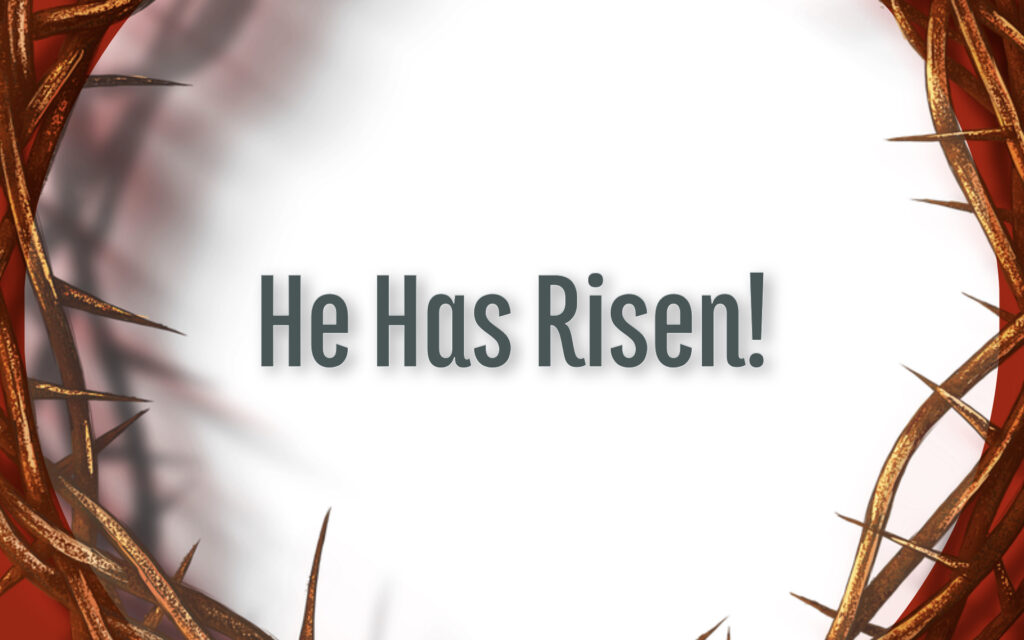The Empty Tomb: A Message of Hope and Transformation

As we reflect on the story of Jesus’ resurrection, we’re drawn to a peculiar account in the Gospel of Mark. Unlike the triumphant narratives we might expect, Mark’s telling ends on a startling note – with fear, trembling, and silence. But far from being a disappointment, this unusual conclusion carries profound lessons for us today.
The story begins with a group of devoted women making their way to Jesus’ tomb. Their intentions are somber; they carry spices to anoint his body, expecting to find a decaying corpse. This detail is crucial – it reveals that despite Jesus’ repeated predictions of his resurrection, even his closest followers didn’t truly grasp what was about to unfold.
As they approach, worried about how they’ll move the heavy stone sealing the tomb, they’re met with an astonishing sight. The stone is already rolled away, and inside sits a young man in white – clearly an angelic figure. His message is earth-shattering: “You seek Jesus of Nazareth, who was crucified. He has risen; he is not here.”
This proclamation changes everything. It’s not just good news; it’s the best news imaginable. Death itself has been defeated. The tyranny of sin and darkness has been overthrown. A new era of hope and redemption has dawned.
Yet the women’s reaction is puzzling. Instead of joy and celebration, we’re told they fled in terror, saying nothing to anyone. It’s a jarring ending that leaves us hanging, wondering what happened next.
But perhaps that’s exactly the point. This abrupt conclusion forces us to grapple with the magnitude of what’s occurred. It reminds us that the resurrection isn’t just a feel-good story – it’s a world-altering event that challenges everything we thought we knew.
Moreover, the women’s fear and silence mirror our own struggles with doubt and disbelief. How often do we, like them, fail to grasp the full implications of Christ’s victory? How frequently do we let fear hold us back from sharing the good news?
Yet there’s profound encouragement woven into this account. The angel specifically instructs the women to tell the disciples – and Peter – about Jesus’ resurrection. This mention of Peter is significant. Remember, Peter had denied Jesus three times on the night of his arrest. He had failed spectacularly in his moment of testing.
But the resurrected Jesus doesn’t abandon Peter. Instead, he extends grace and restoration. This is a powerful reminder that our failures don’t have the final word. God’s faithfulness trumps our unfaithfulness every time.
This truth carries immense implications for how we view ourselves and our role in God’s kingdom. We might look at our own lives and feel utterly unqualified to serve God or share his message. But the Gospel shows us that God delights in using the most unlikely people.
Think about it – a Roman centurion, one of those responsible for Jesus’ crucifixion, becomes the first to declare him the Son of God. Joseph of Arimathea, a member of the very council that condemned Jesus, provides his tomb. And now, in a culture where women weren’t even considered reliable witnesses in court, they become the first to proclaim the resurrection.
God’s kingdom doesn’t operate on the world’s qualifications. It’s not about our impressive resumes or flawless track records. It’s about his power working through our weakness, his light shining through our cracks.
This should fill us with tremendous hope and courage. No matter how spectacularly we’ve failed or how inadequate we feel, we’re never beyond the reach of God’s grace. And more than that – we’re precisely the kind of people he delights to use in building his kingdom.
The resurrection isn’t just about securing our eternal future (though it certainly does that). It’s about transforming how we live right now. It infuses every moment with meaning and purpose. Because Christ has conquered death, we no longer need to be paralyzed by fear – of failure, of rejection, or even of death itself.
Instead, we’re invited to live with audacious hope and unshakable joy. We’re called to be bearers of the good news, proclaiming freedom to captives and light to those in darkness. And we can do so with confidence, knowing that the outcome doesn’t depend on our eloquence or ability, but on the power of the risen Christ working through us.
As we contemplate the empty tomb, let’s allow its reality to permeate every aspect of our lives. Let it embolden us to step out in faith, to love extravagantly, to forgive freely, and to hope unwaveringly. Let it remind us that no situation is beyond redemption, no person beyond the reach of God’s transforming grace.
The resurrection assures us that God’s kingdom will indeed come in its fullness. Every knee will bow, and every tongue confess that Jesus Christ is Lord. This isn’t wishful thinking; it’s the unshakable promise of the One who defeated death itself.
So let’s embrace the paradox of Mark’s abrupt ending. Let’s sit with the tension, allowing it to challenge our complacency and ignite our imagination. And then, empowered by the Spirit of the risen Christ, let’s go forth as living testimonies to the world-changing truth:
He is risen. Death is defeated. A new creation has begun.
This is the heartbeat of our faith, the foundation of our hope, and the fuel for our mission. May we live each day in light of this glorious reality, allowing the power of the resurrection to transform us from the inside out. For in Christ, we are more than conquerors – we are bearers of an unstoppable, all-encompassing hope that has the power to change everything.
